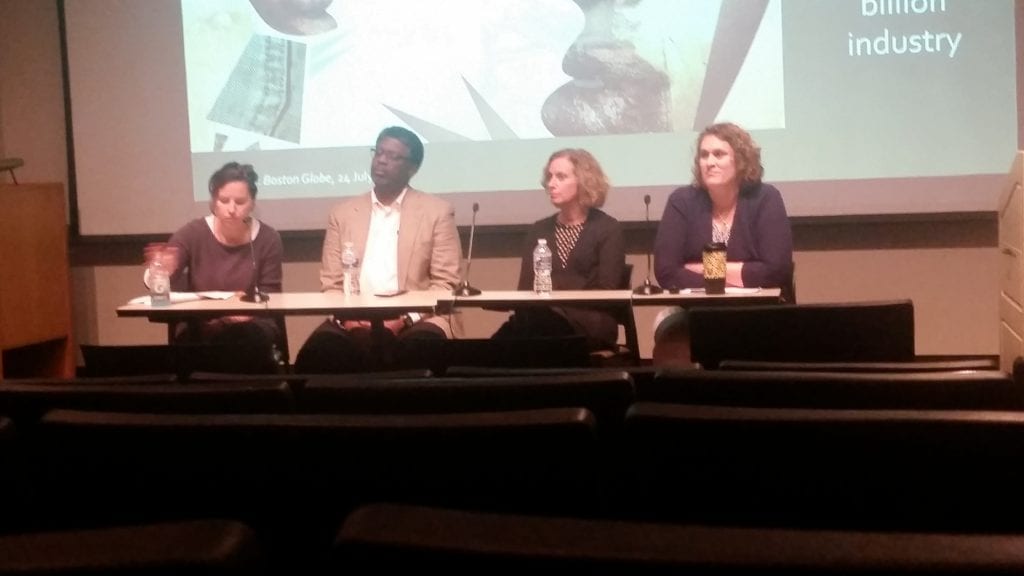Panelists discuss historical roots of race in Latin America and Caribbean
Students and faculty gathered in the Hodges Library Auditorium to discuss racial nuances and stigmas in Latin America and the Caribbean on Wednesday, March 1.

Students and faculty gathered in the Hodges Library Auditorium on March 1 for a round table discussion on race in different regions of Latin America and the Caribbean.
This complicated historical discussion was led by Dr. Michelle Christian, a sociology professor at the University of Tennessee; Dr. Bertin Louis, professor of anthropology; Dr. Susan Thomas, a professor of music and women’s studies at the University of Georgia; and Dr. Kristen Block, a professor of history at UTK. The event was moderated by Dr. Solange Munoz, an assistant professor of geography.
The panel began by asking the question: What are the historical roots of race as a construction in Latin America?
Block began by giving some historical background for mainland Latin America. Unlike how the British pushed the native people out of North America, Spanish conquistadors sought to manipulate the existing structure in Latin America. Instead of wiping them out, the Spanish preferred to intermarry with the native people.
This created a complicated racial system based around trying to make “white blood” more prevalent in the gene pool, something that was very important for the time and still prevails today to some degree. These practices are implicit as the culture has pushed to be more “white” over the years.
However, Thomas went on to point out that not all countries were like this. Cuba, her area of expertise, was vastly different.
After the Haitian revolution, Cuba seized the opportunity to become the world’s leading producer of sugar, a feat that required an enormous amount of slavery to accomplish. In doing so, slave owners became increasingly worried that an uprising might occur similar to the one in Haiti.
“The amount of fear over this growing demographic is growing exponentially,” Thomas said. “A much more overtly white supremacist discourse about race and racial control develops on the island in all aspects of life. In arts, in sciences. It really became about control.”
Moving on to the question of the lingering legacy of race in Latin America, Louis explained that a big part of the problems that we see today throughout the western world can be traced back to the institution of chattel slavery. With this horrific practice, society saw a normative disposability of black life that continues today. As slavery became such a large industry, slave owners resorted to extreme violence to control their slaves, bringing a desensitization to seeing violence against black lives.
“Chattel slavery was different from the kind of slavery in the world thus far. Here blackness becomes something that is negative and whiteness is valorized,” Louis said.
Because of their direct African heritage, many Haitians are treated with disrespect as “stateless” people even in countries with African heritage like the Dominican Republic.
As the event drew to a close, the topic turned to globalization and how it has affected Latin American racial systems. Christian pointed to growing feelings that “whiteness” is still something to be achieved in some Latin American countries. This is a thought process that with some work, will hopefully be put to rest in the future.
Christian also closed with a reminder: “Racism doesn’t exist without inequality,” an important part of stamping out racial prejudice in these countries will be making the countries more equal.
One student in attendance, Kristen Chavez praised the event and the panelist for their discussion.
“As an American and a Latino person I see [racial mixture] as a very nuanced thing, and I’m very glad they’re talking about it,” Chavez said.
Chavez hopes that UT has more discussions like this about diversity.
Edited by Kaitlin Flippo
Featured Image by John Vandergriff

